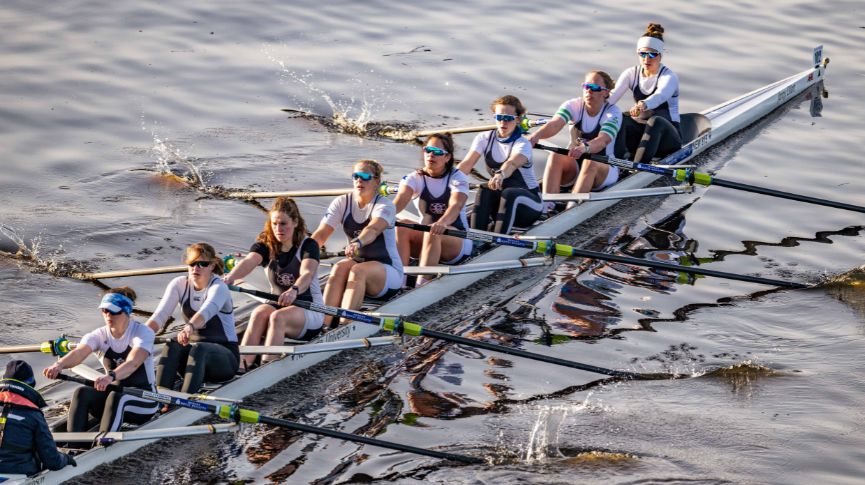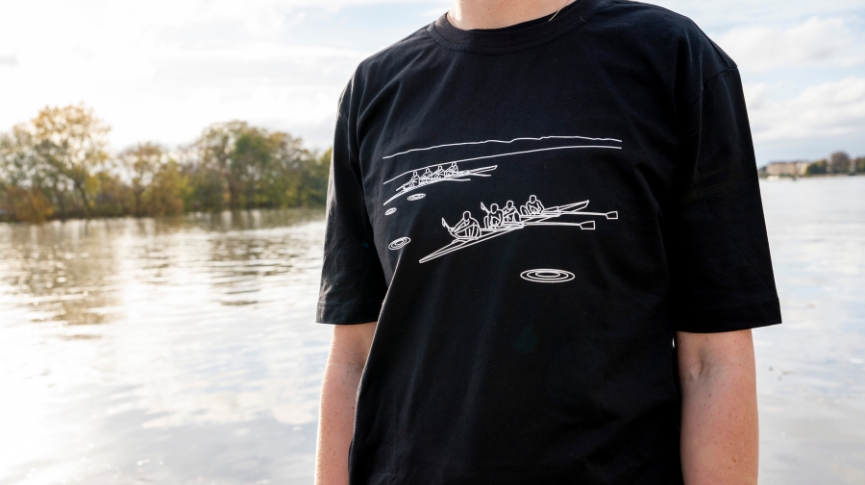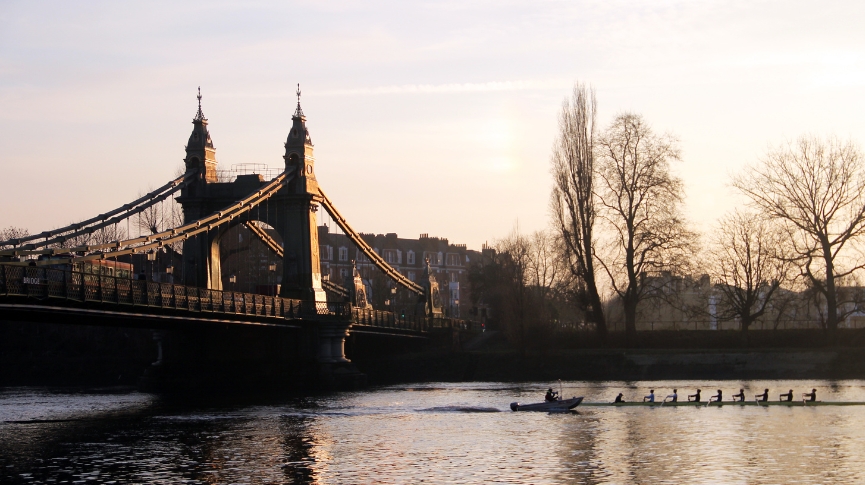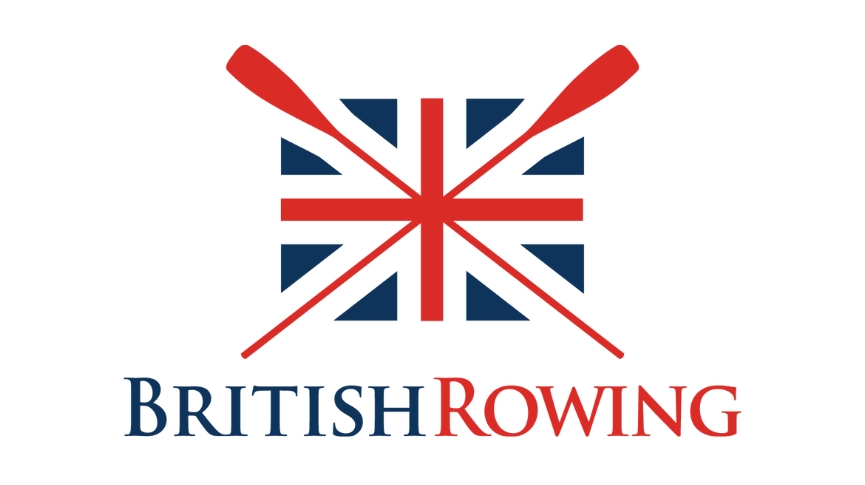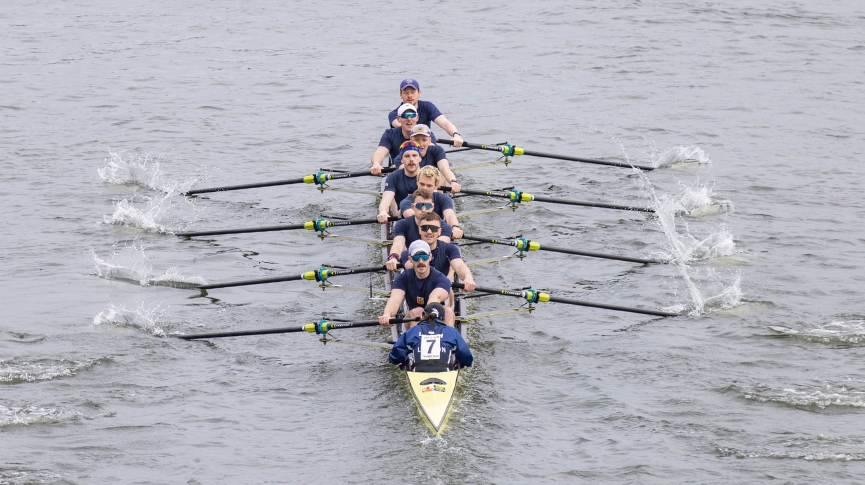Hannah Vines: “To be a high performing coach is very different to a high performance coach”
During British Rowing Coaching Week, Fergus Mainland chatted with Hannah Vines all about Dorney BC to shine a spotlight on Child-First Coaching
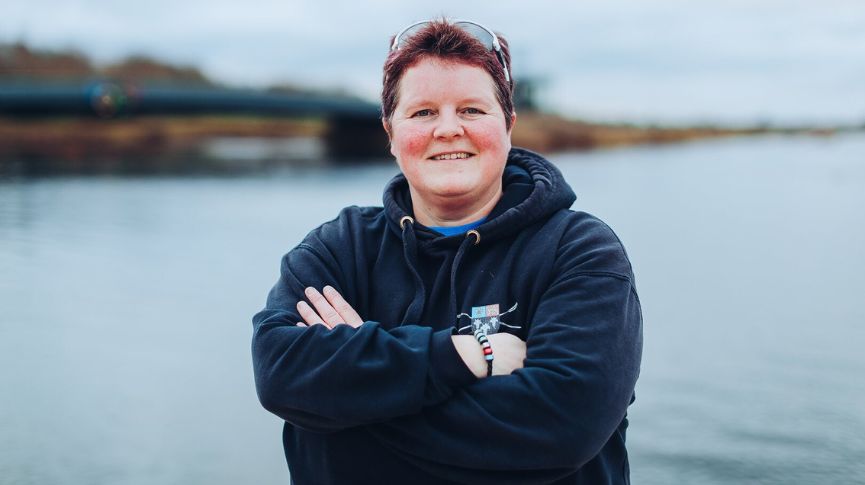
With over 35 years of coaching experience, Hannah Vines has a gold mine of valuable coaching experiences and tips to share.
Her club, Dorney BC, has recently been used as a case study for Child-First Coaching. She and her team ensure that sessions are fun, inclusive, and that everyone who takes to the water is given a skill set that prepares them for a challenge that life may throw at them.
Each year, the staff at Dorney BC support an average of 200 people learning to row in an environment that prioritises individual needs, ambitions, experiences, and to develop useful life skills, such as the ability to work effectively in a team.
Sessions start as soon as the minibus doors are flung open. At that point, Hannah and her team are trying to read all the participants and tailor their interactions depending on what sort of engagements they are greeted with.
“For us, you never know what lesson they’ve just had. If they are coming after break, have they actually eaten something? You’ve probably heard the phrase ‘coach the person in front of you’. For us, we just say coach the child in front of you,” explained Hannah, who won UK Coaching’s Community Coach of the Year Award.
“The biggest thing that is our strength when it comes to coaching the child in front of you is scanning and watching how they are behaving. If they come leaping off the minibus, then you are like, ‘Okay, this could be fun!’ Or they could be dragging their feet, hands inside the cuffs of their sweaters, and they are thinking, ‘I don’t want to be here,’ or ‘This is really hard.’
“So, you’re always scanning, and I think in terms of child first coaching, it’s one of those things you’re trying to read the body language without questioning them. Then, it’s about demonstrating some empathy. I might say, ‘Oh, you look a bit chilly because you have your hands inside your jumper, are you ok?’ and you go from that scanning observation to showing some empathy and trying to make a connection. I think that then brings them in. We talk about psychological safety, and then they can think, ‘This person isn’t going to start barking orders at me like maybe my teachers at school, this will be alright because this person cares.’
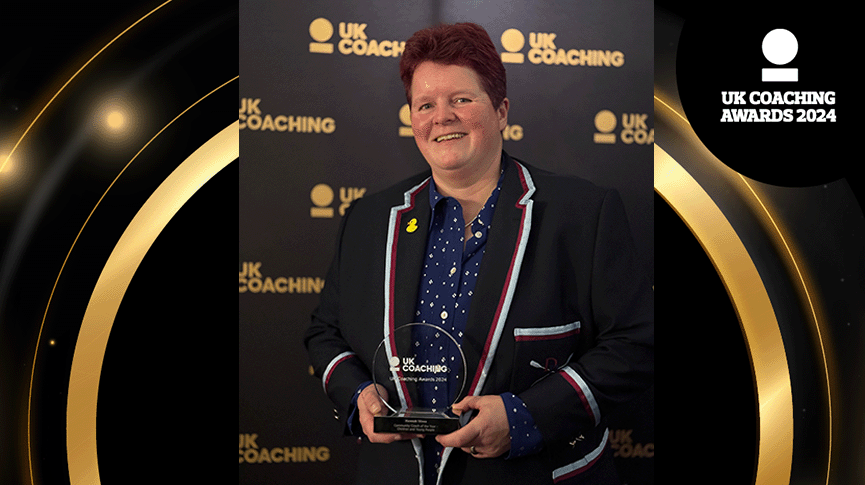
As well as her UK coaching award, Hannah was also presented with the 2023 British Rowing Community Coach of the Year Award and has completed her Level 4 coaching qualification.
Her coaching is all about empowering young people. Testament to that is the fact that a lot of her team is made up of former juniors who learned to row at Dorney BC.
“The best way to describe it is a working shorthand. Granted, we have these very routine weeks, but we know what’s going to happen and we know what needs to be done.
“I might say, ‘Look, I need 10 minutes just to do some emails,’ and you go out and the place is all set up, ready to go. You’re not having to check and challenge them. I think that elevates the coaching process because now we are talking about coaching. We aren’t talking about the equipment being in the right place at the right time. It means we can have conversations about kids, that’s fantastic.”
For Hannah, coaching is a language that is spoken regardless of the sport. Athletes and all coaches have the same intentions regardless of the discipline, so spending time with other coaches in other sports is invaluable.
Over her years in coaching, Hannah has learned about functional movement and rotation from golf as well as coaching behaviours working with physios. Multisport has also provided learning opportunities about leadership and empowering young people to make the right choices.
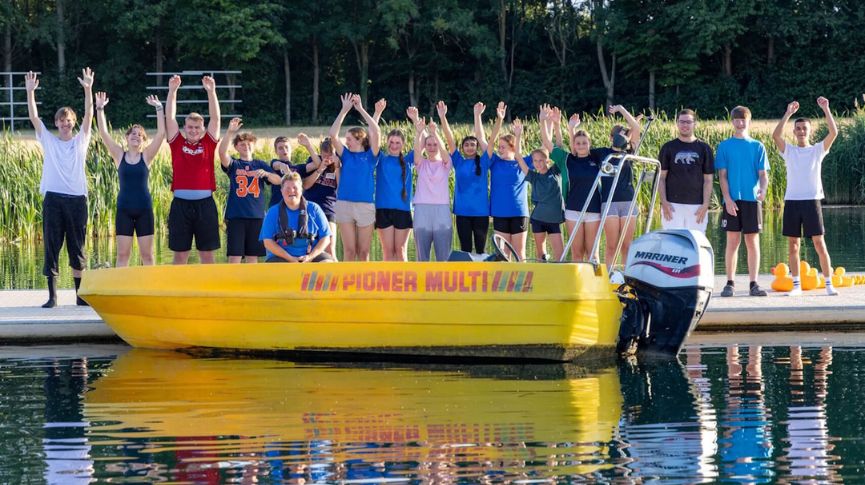
“I grew up in the age where the internet wasn’t a thing! Watching other coaches is invaluable because it’s that nuance where you are listening to the words; I think language in coaching is incredible because of what it can unlock with the person that is in front of you, and when you are in tune with what someone is thinking.
“Being down with Gen Z and saying things are slay and whatever the tea is, it all goes over my head. I have a rough idea, but if they start using it, then I get it.
“I think shadowing is really valuable. I don’t think any coach goes into coaching to put barriers up and say that they won’t share. All coaches want to share, that’s why we are in coaching, so I think shadowing is really valuable.”
During Hannah’s time as a coach, practices have changed, and information has become more easily available. Coaching goals have also become far more three dimensional compared to linear objectives that were the norm 20, thirty years ago.
“To be a high performing coach is very different to a high performance coach.”
“If we think of our traditional approach to the sport, to be the best, you must be racing and winning medals. There is a whole other side to the sport. Having medals on shelves doesn’t necessarily have anything to do with it. We have had school groups that come to us once or twice a week, we’re talking less than 100 hours over the course of a year or so.
“However, they then become captains of their university boat clubs, or they are acting as presidents, or they have done their health and safety, or they’re the kit person. There’s all these other avenues for them to go in, and what we are trying to say is that there is a door, just go and find it. If you are going to university, then we always like to think that you’ll go somewhere with a rowing programme, so you go to them at the Freshers’ Fair and find out more. But at the same time, we give people life skills and whatever you do with those skills, we know you’ll be alright.”
Coaching is a pleasure.
A unique opportunity to inspire the next generation of children who are discovering the sport for the first time. What they go on to do and what they go on to achieve is up to them, but it’s important that coaches instil a set of values in them that will set them up for line and not be afraid to ask questions.
In other life as a teacher, Hannah learned more and more about behaviour, how people’s body language and what they are saying links with psychological safety, and that’ how they are expressing it without actually saying it.
“For young people, they are predominantly spending their time at school learning stuff they don’t know. They look at adults and think, ‘Well, they must know everything,’ so actually for an adult to turn around and say that they don’t know everything, that they are going to make mistakes just as much as the children. I may be in a position of authority because of my age and job title, but we are both the same.
“It’s really easy to say to people, don’t be afraid to make mistakes. You don’t know what you don’t know. Just have a go. When a child or an adult comes to the sport and comes with the mindset of just wanting to have a go and see what happens, then as coaches we need to echo that back and say, ‘I’m here to have a go and see what happens too.”
Following the British Rowing Coaching Conference in January, British Rowing will be building on the theme of ‘Inspirational Coaching’, delivering new live sessions, sharing new initiatives and resources, and celebrating coaches across the sport.
Wednesday, 29 October 2025
As our Coach Development Opportunities move into their third season, we will bring you stories of what it has meant for coaches who have been part of the initiative so far, along with how you can apply for the 2026 season.
We will be holding a sense making Zoom workshop from 18:30-19:30 Monday, 3 November 2025 where we will provide an overview of the opportunities and answer any questions you may have.
Thursday, 30 October 2025
Following his session at the Coaching Conference, you can join Strength and Conditioning expert Alex Wolf to understand how to ensure rowers are physically capable to execute the movements required in rowing to the best of their ability – Alex is the former Head of Strength and Conditioning for the English Institute of Sport, resident author at Science of Rowing, and author of Training the Complete Rower.


